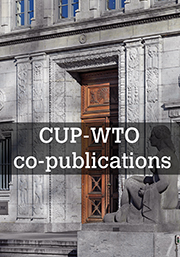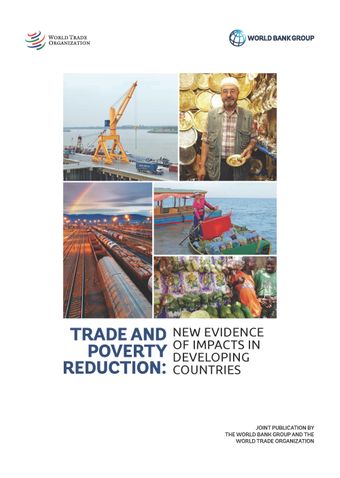CUP co-publications
/content/cup-co-publications
CUP co-publications
OK
Cancel

The WTO co-publishes with Cambridge University Press a series of publications on various aspects of WTO activities and world trade. These publications include handbooks on the WTO agreements, historical accounts of WTO negotiations, the full texts of WTO agreements and numerous studies on key trade topics, ranging from anti-dumping to dispute settlement. Several publications have been issued over the past two decades.
Collection Contents
4 résultats






